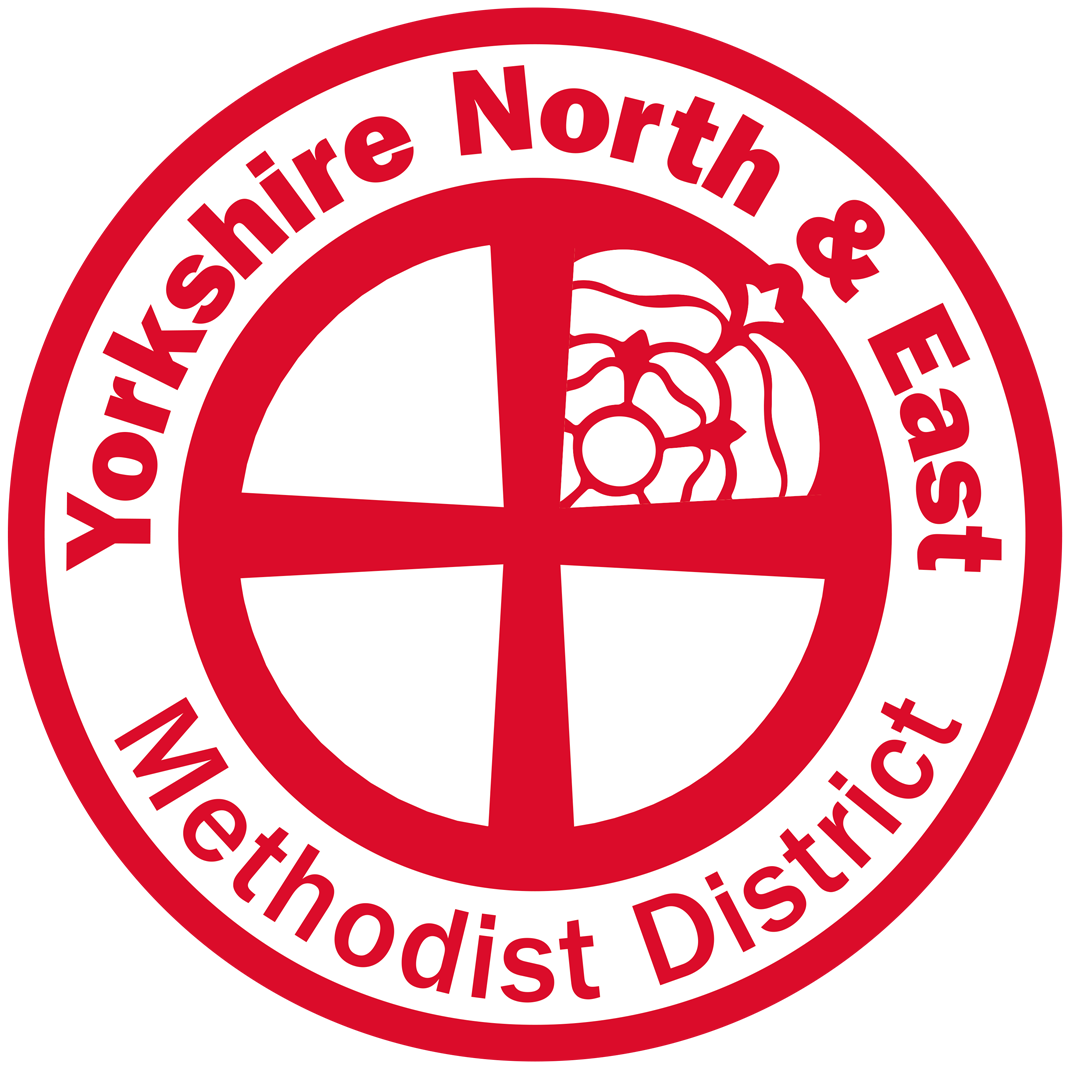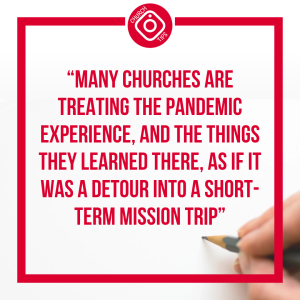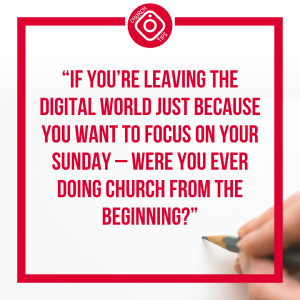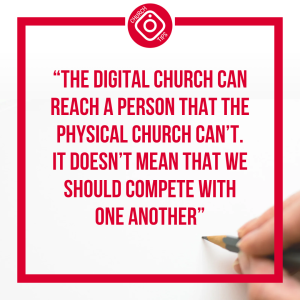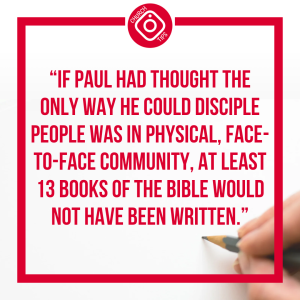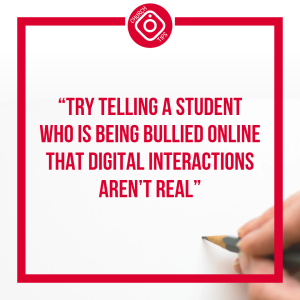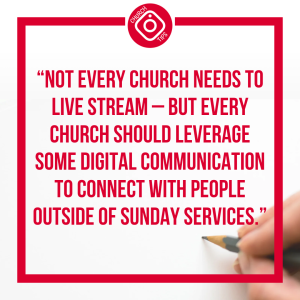Welcome to our Digital Resources Hub
Full of digital downloads, practical advice, and free resources to support and equip your church.
These resources have been put together by Elliot Crippen, in the role of Digital Enabler from 2018 – 2024.
Why is digital important for the church?
Read my article: EMERGING FROM THE COCOON – Why digital is key for the church in 2023
The online world holds huge opportunities for the church to utilise, and is a core part of Our Calling and the Evangelism & Growth Strategy, providing a means to reach people with our message where they are: online. We live in an increasingly digital age and our methods must change to reach a new generation. Now, more than ever, the church must strive to explore how we can use these digital tools for worship, evangelism, discipleship, mission, and ministry.
What are you looking for?
Most recent resouces

NEW SEPT 2024 – Expanding the existing social media bank to include vertical video (Reels & TikTok) templates
Free downloads for churches, created by Elliot Crippen, District Digital Enabler. Over 100 pre-made social media templates that have been designed to work for local Methodist Churches. A Photography Bank containing 100 high-quality photographs taken by Elliot in Methodist Churches around Yorkshire.

NEW SEPT 2024 – Local Arrangement Worship Service Outline
Download a full service that can be used locally to explore the themes of hybrid worship in a digital age, creativity, and the challenges of online life. Resources include prayers, hymn suggestions, bible reading, discussion topics, creative prayer stations, and top tips for making this an engaging “Digital Sunday” service. All optional – use however you like.
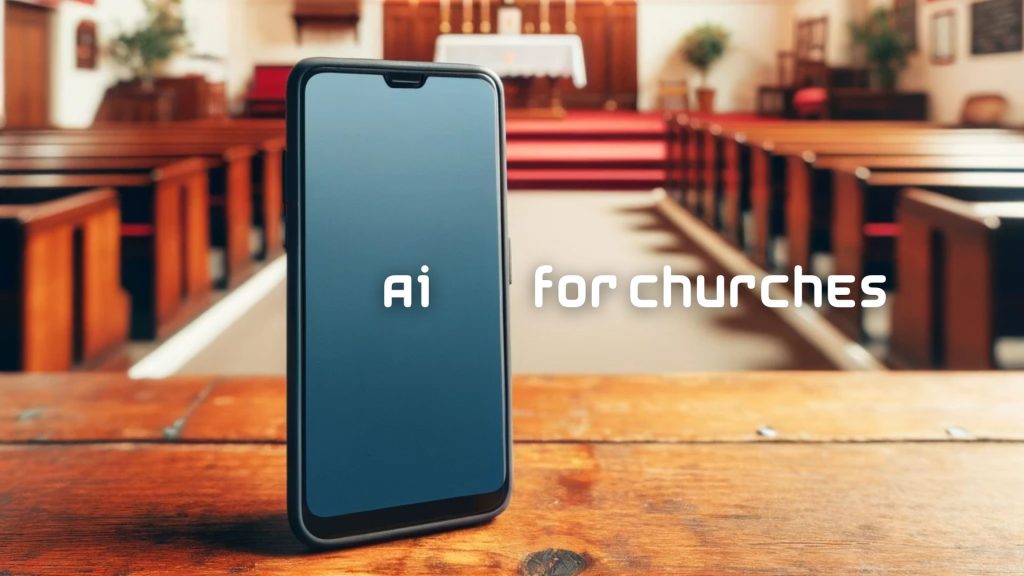
Artificial Intelligence for churches
Find thoughts, resources, discussion and advice on using AI in a church context. Including tips for ways you can use AI to make mundane processes quicker, ideas for worship, and examples of how to creatively utilise this new technology in our faith exploration.
2024 Social Media Masterclass by Elliot
A missional approach to social media for Methodists – Learn a new approach to church social media and how to reach people outside your building along with some tips and examples of what to post online. Keep up to date with current trends and how the basics of social media have changed over the last few years. Watch the 15 min video now in full, or it’s broken down into 6 sections that you can engage with separately.
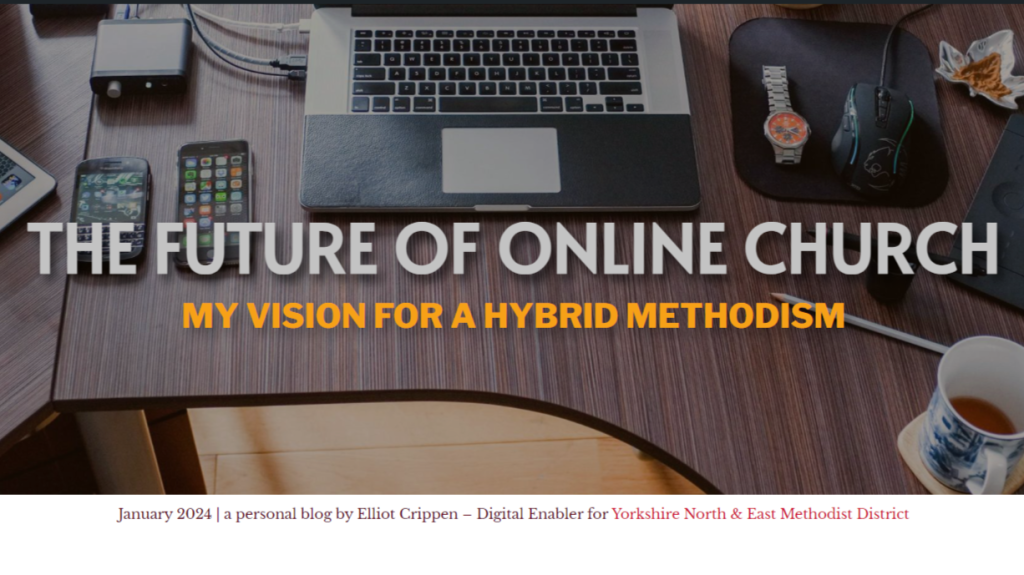
THE FUTURE OF ONLINE CHURCH
As part of my role as Digital Enabler, I get to dream of what the future might look like (with technology and church), and then help make it happen! I’ve written this article to express the vision I’m working towards and to help steer the (local and national) church in our thinking around “online church” in a Methodist context. Give this a read.
Digital Pioneering
Discover what Elliot is up to in his experiments with creative digital spirituality – a diverse range of micro-projects and initiatives.
As of September 2024 Elliot has shifted focus in his role, newly titled “Digital Pioneer”, and so you may see fewer new resources appearing here as he spends more time offering practical innovation in the area of “online church”.
www.kairosmovement.org.uk/digital-revolution
Digital Training
"How to" and Information Guides
Find below guides on a range of digital and online topics – created by our Digital Communications Enabler. All are PDF Documents: (click the red heading text and the document will open in a new tab. You can then choose to read it online or download it)
Design and Branding: a practical guide and suggestions
Level: Beginner – Intermediate | 17 pages | written 2022
Best practices for Methodist Churches. This is is a guide for anyone who already creates graphics, posters, documents, newsletters, notices, or PowerPoints. Providing simple tips to help improve what we already do.
Practical checklist: Church Communication and Publicity
Level: Easy | 2 pages | written 2022
Refresh and improve how you share church information through posters, emails, websites, social media, and other channels. For anyone already involved in this area (such as ministers, admins, lay employees, or volunteers) to give an easy way to improve some of our church communications and publicity.
Practical checklist: Online Worship, Zoom, and Live Streaming
Level: Easy | 2 pages | written 2022
Refresh and improve how you disciple people in your church using online worship, zoom groups, or live streaming. For anyone already involved in this area (such as ministers, admins, lay employees, or volunteers) to give an easy way to improve some of our church’s use of online worship, Zoom, and live streaming.
Practical checklist: Church Outreach on Social Media
Level: Easy | 2 pages | written 2022
Refresh and improve how you reach people outside our churches in the online space – going to where they are on social media. For anyone already involved in this area (such as ministers, admins, lay employees, or volunteers) to give an easy way to improve some of our church’s use of social media.
[note – Facebook updated it’s desktop design in 2020, and some of these guides have screenshots from the ‘old’ design, indicated by the words ‘Classic Facebook’ – they will be updated in due course]
How to get started on Facebook (for individuals)
Level: Very Easy | 11 pages | written 2020
This is a super simple user’s guide to Facebook for beginners in our Church. It is a guide for individuals who are interested in accessing church content on Facebook, or wanting to connect with friends and family, but not confident with setting up an account or using it once they have done.
Step by Step: How to set up a Church Facebook Page
Level: Easy | 6 pages | updated 2021
This guide is for beginners and walks you through each step in creating a Facebook Page for your church.
Best Practices for Church Facebook Pages
Level: Easy to Advanced | 2 pages | updated 2021
This guide is for those who manage existing Church Facebook Pages and provides practical advice on how to get the best out of them, ranging from simple to more advanced tips.
Guide to going live on your Church Facebook Page
Level: Easy | 8 pages | written 2020
This guide is for beginners to provide a step-by-step for how to go live on your Church Facebook Page. Includes guidance for doing this using a windows computer (not Macs) or any phone/tablet.
Guide to recording a video for your Church Facebook Page
Level: Easy | 9 pages | written 2020
This guide is for beginners to provide a step-by-step for how to record a video at home and then how to upload it to your Church Facebook Page. Includes guidance for doing this using a windows computer (not Macs) or any phone/tablet.
How to use a Church Facebook Page (Classic Facebook)
Level: Easy | 3 pages | written 2019
This guide is for those who haven’t used a Facebook Page before, but have just been given admin/editor access for a Church Page which is already set up. Walking you through how to get to the page and post on it. Some more advanced tips are included at the end.
Guide to using Facebook Pages for Evangelism
Level: Intermediate | 4 pages | written 2020
This guide is to provide tips on using this communication tool effectively for evangelism for those who already have, or help run, a church Facebook page.
Guide to using your personal Facebook profile for Evangelism
Level: Easy | 3 pages | written 2020
This guide for those in our churches who already use Facebook provides tips on using this communication tool effectively for personal evangelism.
A Checklist for your Church Website
Level: Easy to Advanced | 2 pages | written 2019
This guide is a good starting point to reference with your Church website and see how well you’re doing. Do you have all these on your website?
Guide for Creating a New Church Website
Level: Intermediate | 2 pages | written 2019
A good starting point if you’re looking to build a Church website and have no idea where to begin. This guide is aimed at provoking the right quesitions you need to ask – not providing simple answers for how to set up your website. There are many factors to consider and will depend on your context and aims.
Guide to using Church websites for Evangelism
Level: Intermediate | 4 pages | written 2020
This guide for those who already have, or help run, a church website provides tips on using this communication tool effectively for evangelism.
Checklist to Improve your Church Twitter
Level: Intermediate | 1 page | written 2019
This guide is for those who manage existing Church Twitter Accounts and provides practical advice on how to get the best out of them.
Guide to using Instagram and Twitter for evangelism
Level: Intermediate | 5 pages | written 2020
This guide is for those who have their own Instagram and Twitter accounts or who run church accounts to provide tips on using
these platforms effectively as tools for evangelism.
Complete guide to using Instagram for your Church
Level: Easy to Advanced | 4 pages | written 2020
If you are using Instagram at your church, or if you are looking to start on the platform, use this document to help you make the most of Instagram and reach more people.
Guide to using Instagram and Twitter for evangelism
Level: Intermediate | 5 pages | written 2020
This guide is for those who have their own Instagram and Twitter accounts or who run church accounts to provide tips on using
these platforms effectively as tools for evangelism.
Guide to uploading your church video to YouTube
Level: Easy | 4 pages | written 2020
This guide is for beginners to provide a basic step-by-step for how to upload a video to your YouTube channel.
Guide for Converting a Poster for Social Media (Word Doc to JPEG)
Level: Easy | 2 pages | written 2019
Avoid taking photos of your printed church posters for online use – use this simple guide to learn how to simply convert a word document into a professional image.
Glossary of Online terms reference document
Level: Easy | 11 pages | written 2019
This document explains in simple terms all the comlicated jargon associated with social media and websites. There are many technical and specific terms that apply to certain platforms and this complete glossary guides you through what they mean. Use this document to help you make the most of online platforms, understand and communicate correctly – you don’t need to know all these words, but it’s a useful reference document.
Suggested External Digital Resources
Level: Easy | 8 pages | written 2019
This document is for signposting resources that already exist and can be made use of by Methodist Churches. Some will be more suited to certain churches, projects and uses than others. It’s not a comprehensive list of all online resources, as there are many others, but this list summarises the most common and useful. Many are free of charge.
From the Connexion...
Getting Started Online is a new course in 2023 from the Methodist Church exploring our place in the digital world. It’s made up of 24 short videos.
Find out more here: www.methodist.org.uk/gettingstartedonline/
Watch all the training videos on YouTube here
Training videos from Elliot...
Over the past 5 years Elliot Crippen has done various videos to help resource local churches, these include:
- Social Media masterclass (2024)
- Social Media trends for churches 2023
- Social Media trends for churches 2022
- Social Media trends for churches 2021
- Understanding online platforms for church safeguarding
Watch all the training videos on YouTube here
Copyright and Licences for Music
Copyright FAQs
A document by the district to try and collate and simplify some of the commonly asked questions around copyright for online worship. Pdf document that opens in a new tab. Take a look here:
District Online Worship Copyright FAQs (pdf)
Methodist Copyright Guidance
A detailed page on the Methodist Church website giving guidance on copyright for online worship
Getting to grips with copyright (URC online pdf)
A helpful guide by the United Reformed Church on copyright and the options available.
Licensing explained for streaming worship songs in the UK (Resound Worship)
Useful background to help you understand how copyright and licensing works, including guidance on what you need for online worship
Copyright Explained – The Bigger Picture (Methodist Blog)
A blog post on the Methodist Website by Miss Beth Dufour, Freelance Permissions Editor from ClearPermissions, helping to explain copyright and how to avoid copyright infringements and potential fines.
Hybrid and Blended Events
Returning to in-person gatherings is a gift, but we need to remember that live streaming / online worship / online meetings are here to stay, and it is especially important in this transitional season as people continue to have varying levels of comfort with in-person gatherings. Hybrid / blended / mixed-economy options are often a great solution. There is a distinction here between hybrid business meetings and doing hybrid church services – the equipment and setup for each might vary depending on the scale. The below resources are to assist with both – also see our Online Worship guidance
Tips for Hybrid Church Services:
(adapted from the CofE)
A mixed-ecology or hybrid church service is not just a normal service in a church building that is livestreamed or recorded. In order for people joining in online to feel as much part of the congregation as people in the building, it really helps to think through how you might change or adapt the structure and content of your service to make it engaging and enable everyone to worship and learn through it.
Duration: It is hard for people to sit through a long church service if they are watching it on a screen. 30 to 45 minutes is a good length to keep people engaged all the way through.
Content: If you watch a TV news programme or magazine programme like Blue Peter or The One Show you will see that it is broken up into lots of different segments and short lines of script. Similarly, an online church service will be easier to watch if there are not too many long blocks of
speech or the same shot on just one person for a long time. It may mean adapting the liturgy (spoken words and prayers) you use to be shorter, involving more people up-front, or varying your camera shots.
Variety A hybrid service that features several people will be more interesting than a service led by just one person. Think about how you can involve different people in the various sections of the service. Those watching also enjoy seeing someone they know pop up on the screen. However, having a core rota of 3 or 4 service leaders/presenters is helpful to build a sense of familiarity and consistency for those watching online. (A bit like knowing all the presenters on Countryfile or The Great British Bake Off!)
Inclusive: Make sure you spend time welcoming your online congregation and introduce yourself at the beginning of the service. Address the camera/s directly at various points in the service. If there is a part of the service they won’t be able to see, make sure you describe what is happening offcamera.
If you’re looking for a more advanced or long term soloution, you may need to install permenent equipment in your church – such as PTZ cameras, audio-visual desk, screens etc.
Here are some options for compainies that supply and install this type of equipment in North Yorkshire that other churches have used:
- Definition Audio Visual from Leeds (www.definitionaudiovisual.co.uk)
- AudioWorks from Ingleton (www.audioworks.co.uk)
- Nuway from Hull (www.nuway.co.uk)
- Expression Media near Glossop (http://expressionmedia.co.uk)
These additional topics may be of interest, as they directly or indirectly relate to hybrid worship and blended events:
Online Worship (including filming tips, livestreaming, and using Zoom)
Contact our Digital Communications Enabler:
Elliot Crippen
digital@yorkshirenemethodist.org
Equipment recommendations for online and hybrid services (CofE Article)
A six-page document outlining some equipment options for hybrid services
A step-by-step guide to online and onsite services (CofE Blog)
This resource combines missional and digital wisdom from the Church of England to inspire and inform churches planning for the post-covid online world.
Plan the Best Hybrid Zoom Event (external blog)
Walkthrough for small hybrid events (not church-focused), such as meetings, with simple tips and suggestions.
Hybrid Church: blending online and offline community
(Premier Digital – Pete Philips)
An article that explores some of the themes from the Grove booklet on Hybrid Church written by Pete Philips
How to host a hybrid meeting (external blog)
Explore how charities can successfully hold meetings catering for both virtual and in-person attendees as the world of work goes hybrid
Digital Discipleship
Building community online: what’s at stake? Quite simply, massively increased inclusion and participation. A piece of research undertaken by the URC Yorkshire Synod shows that the option to join services, meetings, and other events can increase potential participation by more than 80%. People report that shifting church online during the pandemic has led, in many cases, to:
• Increased numbers at services, Bible studies, prayer meetings,
youth groups, clubs, community outreach events etc.
• Increased regular attendance
• Increased levels of personal contact and pastoral care
• Increased sense of belonging and membership
A digital space, in other words, for a shared journey of discipleship. The fellowship, inclusion, and connection that are made possible by technology are also demanded by the call to follow Jesus faithfully in today’s world. We need to think about an online presence in terms of community building – interactive, mutually beneficial, and adding value to peoples lives.
More resources coming soon…
As a starting point take a look at our guidance on Filming Video from Home and Live Streaming from Church Buildings – both of which are located on our Online Worship Page
Tips:
- The best platforms for developing online communities are Facebook Groups, Zoom, and WhatsApp. Facebook Pages, Twitter, YouTube and Instagram are all more for outreach and less suited to building personal relationships.
- Trying to build community with everyone all at once is difficult, the better way is to encourage and organise online small groups
- Do more than just online worship – look at options for mid week content, such as online bible studies, prayer meetings, coffee mornings, social gatherings, dicussion nights, games evenings, online alpha course, or ‘Ted Talk’ style thought provoking content with special guest speakers.
- Provide options for ‘next steps’ if people are interested or wanting to move from ‘pasive veiwer’ to engaging in deeper conversation and real community. Don’t wait for them to come to you, be pro-active in encouraging people to take the next step in developing their faith. Just remember that the end goal shouldn’t be to get them to your physical church building! (although not everything has to take place soley online – think about hybrid, mixed-economy, and fully online options. Hold events in-person and online, but don’t just expect the next step from online worship to be turning up on a sunday morning)
- In order to achieve the above, you need to be running several ‘styles’ of online content that cater to people’s different places on the spectrum of how invovled they want to be – you can’t form true online comunity or really develop people’s discipleship just by doing an hour online worship on a sunday. Maybe you could do morning prayer live on Facebook, which is an easy access point for ‘passive viewers’ but can also develop an online community around it, and then one ‘next step’ in discipleship might be to offer deeper online content in the form of alpha, or a long-from podcast, zoom bible study. Or it might be to invite people to join a Facebook Group, or WhatsApp group, where they can continue the discussion or prayer, and build on relationships with others. A next step on from this might be to organise ‘small groups’, or discussion groups that meet (online or in-person) to engage with the podcast or other long-form material.
These additional topics may be of interest, as they directly or indirectly relate to digital discpleship:
Contact our Digital Communications Enabler:
Elliot Crippen
digital@yorkshirenemethodist.org
Doing Online Differently: A roadmap for digital discipleship (URC guide)
A great practical guide by the URC church looking at how we can build online community for discipleship
Ten ways to do online Church without losing community (external blog)
Some great tips on ways to keep a sense of community when moving church online.
Seven ways to create community online (external blog)
Ideas for providing more than your typical church service online
Five ways to build community with your church social media (external blog)
Conversation and community are happening online whether churches participate or not. A major goal of the church is to “be where the people are,” so if your church is leaving out digital spaces like social media platforms, you’re missing a huge opportunity to connect with people. Here are the five tips to help you build community through church social media.
Digital Safeguarding
Comprehensive District Guidance
A detailed list of FAQs that help unpack Methodist safeguarding policy in an online context, including resources to help with practical application of this guidance.
This resource has taken a year to produce, and is a long document (over 45 pages) – it is not intended to be read cover to cover. It will hopefully answer a specific question you have, and is a resource you may want to keep revisiting. If you are looking to get an overview and general understanding you may want to skim through the “short answers” and look at the first FAQ in each section. The contents of this document have been created by Katy Spencer-Madden (previous District Safeguarding Officer) and Elliot Crippen (District Digital Enabler).
Digital Safeguarding Best Practice Reference Document
https://bit.ly/DigitalSafeguarding
General Safeguarding policies, guidance, and support can be found here: www.yorkshirenemethodist.org/our-work/safeguarding/
Read Elliot’s blog on the Methodist Church website for Safer Internet Day 2023:
www.methodist.org.uk/about-us/news/the-methodist-blog/creating-safe-faith-spaces-online-how-digital-safeguarding-works-in-practice/
In our District...
Numbers of churches in our District that have their own website, Facebook Page, Twitter account or Instagram profile – based on findings in the District Digital Review undertaken between Sep to Dec 2018
Around 54.2% of our district churches have no online presence
*based on findings between Sep-Dec 2018. Churches without a website or any social media account managed by the church
Online and Digital Giving
This section covers some guidance and suggestions around online giving (such as online payments through a church website) and contactless payments (such as having a contactless collection plate in church).
District Contactless Giving Guidance Document (word doc)
A guidance document was created by the district in 2019 on contactless giving options for churches.
Online and contactless giving at local churches (URC online pdf)
A guidance document by the United Reformed Church that runs through the technological solutions for giving at churches, both online and contactless.
External Resources
Here are some suggested external resources that we have signposted for you on all aspects of digital communications for churches:
The Methodist Church (www.methodist.org.uk/digital) – Digital Communication guidance for churches. Information on websites and social media and how to effectively use them for mission and evangelism.
Church of England Digital Labs (www.churchofengland.org/labs-learning) – a hub of resources, news and events to support digital evangelism and digital discipleship in the Church of England. We’re excited to be expanding Church of England Digital Labs so that we can resource more churches with the right tools and skills they need to do digital effectively. Digital Labs now consists of a number of areas: 1.Labs Learning blog: Weekly blogs on helpful topics for churches around maintaining a good digital and online presence. 2.Labs Learning roadshow: Large events held across the country, where we bring our training to you. 3.Labs Latest newsletter: Monthly email newsletters filled with digital hints, tips and good practice. 4.Digital Labs Live: An annual event for Christian creatives
URC Information Guides (https://urcyorkshire.org.uk/urc-information-guides/) – A wide range of guides by the United Reformed Church on all aspects of digital and online church. Includes guides on: Zoom, Facebook, Copyright, Livestreaming, Podcasts, WhatsApp, and setting up WiFi – amoung many others.
Seventh-day Adventist Church digital resources (www.sdadata.org/resource-menu.html) – resources to empower and equip ministries with the necessary resources, skills, and information to accomplish our shared goal of serving the community and advancing the gospel message. New resources added weekly. Resources include: Adventist Identity Guidelines, Big Data Resources, Branding, Images & Design Resources, Church/Ministry Specific Resources, Copyright & Trademark Resources, Digital Discipleship & Evangelism, Email Resources, Guidance for Hiring a Social Media Positions, NAD Social Media Guidelines, Podcasts, Reports & Case Studies, (SEO) Search Engine Optimization for Ministries, Tracking & Analytics Resources, Social Media Resources, Video Resources, Videos & Tutorials, Website Tips.
United Methodist Church (www.umcom.org/topics/learn) – digital resources from the United Methodist Church.
Pro Church Tools (https://prochurchtools.com/free-tools) – free tools for churches provided by Brady Shearer from the USA. Whatever your learning style, you’ll find video, audio, and written training to help your church seize the 167 (your week has 168 hours. If your Sunday Service is just 1hr, how is your church reaching people in the other 167?). Pro Church Tools provides guidance on all aspects of digital communication, websites and social media.
Church Train (www.churchtrain.uk) – Church Communication Training. Equipping UK churches and volunteers to communicate effectively with free blog posts on digital guidance and as a business providing graphic design, websites and branding for churches (paid).
Go Chatter Videos (https://gochattervideos.com) – Go Chatter helps those in Christian ministry discover helpful videos that can get people talking about Jesus. The Go Chatter site brings videos together from over 20 different Christian content creators who have kindly given permission to make their videos available for churches to download for free.
Go Chatter Customisable Videos (https://gochattercustomvideos.com) – the Go Chatter team have created an online tool to that enables you to create your own customised videos in just a few minutes for only a small price per video. The tool is easy to use and doesn’t require any video editing experience. Simply choose a template video, add your text, logo, photos etc and then the online tool will compile your finished video. For the price of a coffee you can download the video which will be ideal for showing in your church or posting on social media.
Tips for shooting church video from your phone:
www.fishhook.us/blog/8-steps-to-shooting-iphone-videos-at-your-church
How to film video on your phone:
www.churchofengland.org/How-to-set-up-to-film-a-video-on-your-phone
The Ultimate Church Video Production Guide:
https://easychurchtech.com/church-video-production
How to create subtitles for your video:
www.churchofengland.org/more/media-centre/digital-labs/labs-learning-blog/how-create-subtitles-video
How to upgrade your church video production:
https://prochurchtools.com/how-to-instantly-upgrade-your-churchs-video-production
Advanced Video Techniques:
https://prochurchtools.com/pcp036
Best video editing software:
www.techradar.com/best/best-video-editing-software-premium-free
Royalty-Free music sites for your videos:
https://blog.hubspot.com/marketing/royalty-free-music-videos
Taking great church photos:
www.churchofengland.org/more/media-centre/church-england-digital-labs/labs-learning/taking-great-church-photos
Building your church photography library:
www.churchofengland.org/more/media-centre/church-england-digital-labs/labs-learning/building-your-photography-library
PIXLR (https://pixlr.com) – a free online editing service (with a paid option available). Take photo editing to the next level with AI-powered tools. Experience speedier and easier edits for maximized creativity. Designed to be easy, you can now edit images smarter and faster for Free – with Pixlr. No steep learning curve, no design experience needed.
Graphic Design Platforms
Canva (www.canva.com) – Canva is a free online simplified graphic-design tool, founded in 2012. It uses a drag-and-drop format and provides access to photographs, vector images, graphics, and fonts. It is used by non-designers as well as professionals. The tools can be used for both web and print media design and graphics.
Church Comms Create, by CPO (www.churchcommscreate.com) – Church Comms Create is a paid desktop design platform for church communicators and Christian creatives in the UK provided by CPO (Christian Publishing and Outreach – www.cpo.org.uk). Optimised for desktop computers, Church Comms Create allows you to instantly resize any design, integrates thousands of free fonts and makes it easy even for those less confident with design, saving you time and money.
Guide for Converting a Poster for Social Media (Word Doc to JPEG)
Level: Easy | 2 pages
Avoid taking photos of your printed church posters for online use – use this simple guide to learn how to simply convert a word document into a professional image.
Resources:
Here is some guidance for creating posters for your church, particularly if you are looking to use them online:
Free editor for easily making church posters:
www.canva.com/create/flyers/church-flyers/
Church posters online resources:
https://www.cpo.org.uk/christian-posters
How to create great posters for your church:
www.churchofengland.org/more/media-centre/church-england-digital-labs/labs-learning/how-create-great-posters-promote-your
Do’s and Dont’s of Church Flyer design:
www.churchtrain.uk/blog/church-flyer-design-dos-and-donts/
Church poster design tips:
www.churchtrain.uk/blog/church-poster-design-tips/
Photos, Images and Graphics
Unsplash (https://unsplash.com) – Unsplash provides over 1 million free high-resolution images brought to you by the world’s most generous community of photographers. All photos published on Unsplash can be used for free. You can use them for commercial and non-commercial purposes. You do not need to ask permission from or provide credit to the photographer or Unsplash.
Pexels (www.pexels.com) – The best free stock photos & videos shared by talented creators. Pexels is very similar to Unsplash, and by providing free stock photos Pexels helps millions of creators all over the world to easily create beautiful products and designs. All photos on Pexels are free to use and attribution is not required.
Flaticon (www.flaticon.com) – Flaticon is a Freepik company (www.freepikcompany.com) and is the largest database of free customizable icons. Flaticon has more than a million icons in all formats, for all kind of projects: presentations, apps, websites, catalogues, infographics etc. They are free to download and can be used for multiple purposes (with a few restrictions).
MetaChurch: How to use digital ministry to reach people and make disciples by Dave Adamson (2022) – Digital ministry is complicated and exhausting. You know there’s more to it than just streaming services and posting on social media. But where do you start? Dave Adamson was one of the first online pastors in the world, and he draws on this experience to give church leaders a detailed, practical guide to help them develop a church strategy in which online and on-site ministries work together seamlessly. Learn how a digital ministry can complement physical ministries and help them grow, and discover how to reach and connect with people beyond the church building.
So Everyone Can Hear: Communicating Church In A Digital Culture by Mark Crosby (2019) – Communication lies at the heart of every healthy community; the church is no exception. In Matthew 11:15, Jesus says, ‘Whoever has ears, let them hear’. How do we make sure we are saying things in a way that invites all people – no matter their background – to engage with what it means to be church today? This colourful, engaging and practical book will help leaders and members alike be more mindful of how they ‘communicate church’ both inside and outside of it within our dynamic and ever-changing digital culture.
The Social Church, a theology of digital communication by Justin Wise (2014) – We’ve been living in a digital world for quite a while now. Justin Wise speaks about social media as this generation’s printing press–a revolutionary technology that can spread the gospel farther and faster than we can imagine. It’s time to take what we know (and admit what we don’t know) and learn together how to move forward as the church. Are you ready to think theologically about this digital age and reach people in a new way?
Church Online: websites by Laura Treneer from CPO (2017) – part of the CPO series “Reach Out: Church Communications”. Combining missional vision with practical advice, this resource gives you the tools you need to transform a church website or create one for the first time. Ideal for church teams who want to reach their communities effectively.
Church Online: social media by Laura Treneer from CPO (2017) – part of the CPO series “Reach Out: Church Communications”. Combining missional vision with practical advice, this resource gives you the tools and checklists to consider your approach to social media as a church. Ideal for church teams who want to reach their communities effectively.
Online Mission and Ministry: A Theological and Practical Guide by Pam Smith (2015) – Many clergy and churches are now taking to the internet and social media to promote their churches or ministries, but few have thought through some of the difficult pastoral and theological issues that may arise. ‘Virtual vicar’ Revd Pam Smith guides both new and experienced practitioners through setting up online ministries and considers some of the issues that may arise, such as: Are relationships online as valid as those offline? Is it possible to participate in a ‘virtual’ communion service? How do you deal with ‘trolls’ in a Christian way? What is it appropriate for a clergyperson to say on social media?
Youth Ministry in a Digital Age: Understanding and Reaching a Generation of Digital Natives by Liz Dumain (2017) – The digital revolution that has transformed how young people communicate, interact and live every aspect of their lives. This vital booklet argues that if ignored, the impact of digitalization—where connection to social media and digital networks is as intrinsic as the act of breathing—is a divided church with generations drifting further apart. But opportunities abound for youth workers to be digital prophets to a generation of digital natives who have disengaged from traditional church.
Sharing Faith Using Social Media by Bryony Taylor (2016) – How can my church utilize social media for outreach and evangelism? Are my online friends real or virtual? And does Jesus really have his own Facebook page? This compelling booklet draws on primary research to explore these and many other questions. It sets out a series of implications for mission in the inter-connected, tech-savvy world that the church is called to bear witness to today.
Digital Millennials and the Bible report by CODEC in partnership with Barna and Bible Society (2018) – Discover how the Bible is perceived by ‘digital millennials’. Available online.
Bit.ly (https://bitly.com) – Shorten, create and share trusted, powerful links for your business. Bitly helps businesses shine by shortening URL links. With Bitly, you can easily track your customers’ journeys on every link and channel from a single, sleek dashboard. Free and paid accounts are available.
Digital Church Toolkit (www.digitalchurchtoolkit.com) – Helping you preach the Gospel, build His Church & expand the Kingdom in the Digital Age. We equip the church with tools and wisdom to spread the gospel and reach communities in the digital age. Does your Social Media feel like an afterthought? They provide training, paid services, and bespoke packages in the UK.
Missional Generation (www.missionalgen.co.uk) – Missional Generation is about equipping young people to be influential for God in every arena of life. Our work is to help the Church strengthen its voice and be at the cutting edge in society. Our Virtual Reality and Augmented Reality resources are a powerful means to inform, expose and help young people explore faith, mission and evangelism. We believe that if we can immerse a generation into exploring faith in Jesus using VR or AR, we will create a space that enables young people to develop a passion to know and share Jesus with the world and places they occupy. We believe that there is an exciting technological growth within the secular world, and we want to resource the church.
Church Comms Collective UK (www.facebook.com/groups/churchcommscollectiveuk) – a Facebook group specifically for those who help provide communications for churches, Christian charities, or Christian content creation in the UK. This includes leaders, administrators, designers, videographers & social media managers (if you contribute to a church social media page that means you)! There are many church communication groups on Facebook full of great content, however, there are specific cultural factors unique to UK that are sometimes missed, and this group is designed so we can help one another in that void. This is a place to share good practice, ideas, ask questions, inspire others and gain from shared knowledge.
Church Communications Improvement Project by CPO (www.churchcomms.uk) – The Church has a world-changing message of hope to communicate, but sometimes needs help with design, with digital, with all that is needed in communication. CPO has been working to support the UK Church in its communication for over 60 years. We understand the challenges of a small budget, over-stretched volunteers and lack of specific expertise and we are here to help. The Church Communications Project is a comms improvement fund for churches who lack the financial resources to improve their communications. Grants are between £50 and £1000 in the form of communication tools provided by CPO or its partners.
Christian Creative Network (https://christiancreativenetwork.com) – The Christian Creative Network UK was launched in May 2017 to get Christian creatives together to connect, share ideas, grow and encourage one another. The vision of the Christian Creative Network is to “Champion creativity in the body of Christ” and it does this through providing a free network for Christian creatives, made up of branches up and down the UK. Each branch has a monthly meet and an online Facebook group for local networking. Branches run workshops and host events, which equip creatives and provide opportunities to showcase individual’s creativity.
Premier Digital Conference (www.premierdigital.info/conference) – discover a world of advice, ideas, insight and guidance to help you communicate credibly and effectively online. Through 32 sessions delivered by over 40 contributors you are sure to find the help you need for your digital endeavours. New ideas that you can use in your church, charity or project. Understand how digital tools can work for you in your context. Learn new skills that will help you grow your project or ministry. Explore how digital is impacting our theology and humanity. Meet new people, build relationships and learn from one another. Whether you’re looking to go deeper into social media, websites, evangelism, digital theology, fundraising or communications there will be sessions for you. Pro or beginner come along as a church, team or on your own for an inspiring day that provides content and value for money you can’t find anywhere else. Ticket pricing is available on the Premier website.
Centre for Digital Theology formerly CODEC (www.dur.ac.uk/digitaltheology) – a research centre at Durham University – their staff write both academic papers and publications as well as writing for a more general audience. They supervise postgraduate students researching at Durham and elsewhere, and have a world first MA in Digital Theology. Their MediaLit course offers a great opportunity for those seeking an introduction to theological reflections and practical training on digital culture.
